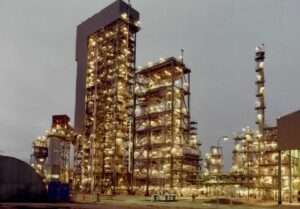Unlocking the value of waste

The biofuels market is evolving rapidly, with new technologies and policies shaping the future of sustainable fuels. How do you see GIDARA’s role in this changing landscape?
The biofuels sector is at a crossroads: demand for sustainable fuels is surging, but the industry is running up against hard limits – particularly with feedstock availability. At GIDARA, we are addressing this head-on by turning an abundant challenge – waste – into a powerful solution for the energy transition.
Our HTWR gasification technology enables the conversion of a wide range of waste streams into sustainable fuels and chemicals, including sustainable aviation fuel (SAF) and methanol. What sets us apart is our gasification pathway, which is emerging as one of the most important solutions to the industry’s feedstock bottleneck.
By licensing our technology, we empower global partners to tap into new, locally available feedstock streams and accelerate the rollout of fuels and chemicals where they’re needed most. Our focus extends beyond growing our business; it’s about significantly increasing our impact and helping the energy transition overcome its current limitations.
The aviation sector is under intense pressure to decarbonise, and sustainable aviation fuel (SAF) is seen as a key solution. What are the main obstacles to scaling SAF, and how is GIDARA working with others to overcome them?
Aviation’s decarbonisation challenge is urgent. While SAF is widely recognised as the most viable near-term solution, the sector remains stuck at less than 1% SAF penetration. The HEFA route alone will not be enough to meet future demand, as it is constrained by limited supplies of waste fats, oils and greases.
This is where GIDARA’s gasification pathway makes a real difference – it opens the door to a much broader and more abundant feedstock base, allowing for true scaleup of SAF production. Our HTWR technology has been proven at industrial scale, and we believe it is key to delivering the SAF capacity the industry needs.
However, technology alone is not enough to move the needle. That’s why we’ve joined forces with Johnson Matthey, Honeywell UOP and Samsung E&A. Together, we combine expertise in catalyst development, automation, engineering and project delivery.
What makes this SAF Technology Alliance unique is that, for the first time, all the critical elements for commercial-scale SAF production have been brought together. Cutting-edge technology, world class engineering and proven project execution are now unified under one coordinated partnership.
This alliance enables us to reduce project lead times by more than 15% and lower investment risk for our customers. Our coordinated approach provides customers with a single, integrated solution that meets the market’s demand for speed, certainty and tangible progress.
Looking ahead, what gives you confidence that advanced biofuels and alliances like yours can deliver on the promise of a lower carbon future?
What gives me real confidence is the unique capability of gasification to unlock a future for sustainable fuels that simply isn’t possible with other technologies. Gasification stands out because it can transform a vast array of low-value waste materials – otherwise destined for landfill – into high-quality syngas, which is then converted into sustainable fuels and chemicals. This approach isn’t just about volume – it’s about flexibility and resilience. Unlike other pathways that are limited by scarce feedstocks, gasification opens access to a much broader spectrum, from municipal solid waste to biomass, making true scale-up achievable.
At GIDARA, we’ve refined this pathway using our HTWR gasification technology, which is proven at commercial scale, robust, and highly adaptable. Our process is engineered for efficiency, reliability and operational simplicity, making it deployable at industrial scale and easily integrated into existing infrastructure.
This is a gamechanger for decarbonisation: it enables the production of fuels that meet stringent standards while reducing waste and emissions at the source. Another positive sign is the momentum we’re seeing across the board: policymakers are raising the bar with new mandates – such as ReFuelEU and the IMO; investors are backing scalable solutions; and the industry is embracing new technologies that can finally help us overcome the current limitations of the energy transition.
At GIDARA, our role is to enable and connect – to provide our technology, experience and partnerships that turn ambition into action. By focusing on practical, scalable solutions and working as part of a powerful alliance, we’re helping to build the infrastructure for a truly circular and low-carbon economy.
For more information: Visit gidara-energy.com












